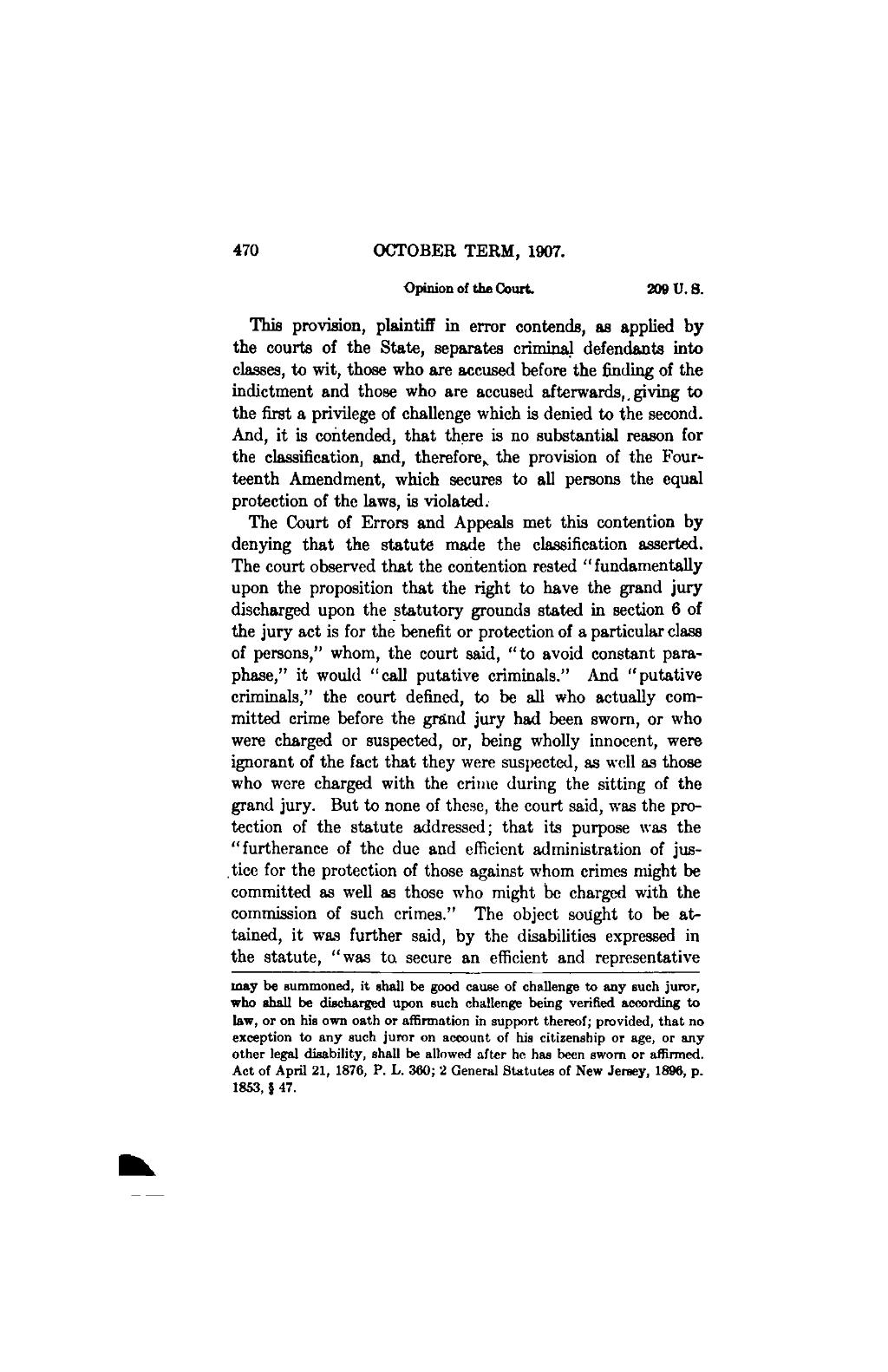OCTOBER TERM, 1907. Op/nion of the Court. 209 U.S. This provision, plaintiff in error contends, as spplled by the courts of the State, separates crimin?! defendants into classes, to wit, tho?e who are accused before the finding of the indictment and those who are accused afterwards,. giving to the first a privilege of challenge which is denied to the second. And, it is cofitended, that there is no substantial mason for the classification, and, therefore, the provision of the Four- teenth Amendment, which secures to all persons the equal protection of the laws, is violated.. The Court of Errors and Appeals met this contention by denying that the statute made the classification asserted. The court observed that the contention rested "fundamentally upon the proposition that the fight to have the grand jury discharged upon the _statutory grounds stated in section 6 of the jury act is for the benefit or protection of a particular class of persons," whom, the court said, "to avoid constant para- phase," it would "call putative criminals." And "putative criminals," the court defined, to be all who actually com- mitted crime before the gr?nd jury had been sworn, or who were charged or suspected, or, being wholly innocent, were ignorant of the fact that they were suspected, as well as those who were charged with the crime during the sitting of the grand jury. But to none of these, the court said, was the pro- tection of the statute addressed; that its purpose was the "furtherance of the due and efficient administration of jus- .ticc for the protection of those against whom crimes might be committed as well as those who might be charged with the commission of such crimes." The object sought to be at- tained, it was further said, by the disabilities expressed in the statute, "was ta secure an efficient and representative may be summoned, it shall be good cause of challenge to any such juror, who shall be disclmrged upon such challenge being verified according to law, or on his own oath or affirmation in support thereof; provided, that no exception to any such juror on account of his citizenship or age, or any other legal disability, shall be allowed after he has been sworn or affirmed. Act of April 21, 1876, P. L. 360; 2 General Statutes of New Jersey, 1896, p. 1853, �.
�
